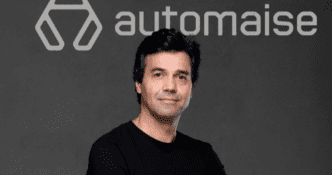Swedish startup Evroc has secured €50.6 million ($55 million) in Series A funding as it races to build Europe’s first sovereign hyperscale cloud platform. The three-year-old company is on a mission to create a secure, sustainable, and independent European cloud infrastructure — a move gaining momentum as calls grow louder for an EU-controlled tech stack.
This significant investment arrives as European tech leaders urge policymakers to reduce the continent’s reliance on U.S. cloud providers. Just days ago, a coalition of European tech voices demanded radical legislative action to reclaim digital sovereignty. Their appeal focuses on reducing dependence on foreign-controlled apps, AI models, semiconductors, and cloud services.
Riding this wave of support, Evroc is pushing forward with plans to operate eight hyperscale data centers by 2028. Currently, the company runs two co-location facilities in Stockholm and another two in Paris. By mid-2025, Evroc expects to activate additional sites in Frankfurt, laying the groundwork for two flagship data centers in Sweden and France by 2026 — designed specifically for AI workloads.
CEO and founder Mattias Åström explained that these future facilities are being developed to handle AI’s intense computing demands. Each data center will feature liquid cooling systems and server racks capable of consuming energy at 20 times the rate of traditional racks. “Our design supports the energy density AI requires,” Åström shared.
Evroc is already working with early beta clients from high-security industries such as defense, healthcare, public services, and finance — sectors where sovereignty is crucial. The full commercial launch is expected later this year, with more data center announcements anticipated in 2025.
Why Digital Sovereignty Matters Now
The debate around Europe’s digital independence isn’t new. U.S. tech giants have long invested in local European infrastructure to comply with strict data residency laws. OpenAI, for instance, recently launched an offering to allow European customers to process and store data within the EU.
However, Åström stresses that ownership, not just server locations, is critical in today’s geopolitical climate. He pointed to several high-profile incidents that exposed Europe’s vulnerability due to dependence on foreign tech infrastructure.
One example is former U.S. President Donald Trump’s executive order that imposed sanctions on the International Criminal Court (ICC) in the Netherlands. Reports revealed the ICC relied heavily on Microsoft’s Azure cloud services — showcasing how political decisions can directly impact European institutions.
Similarly, Elon Musk admitted to restricting Ukraine’s Starlink satellite access during the war — a move that sparked fears over Europe’s reliance on private foreign-owned infrastructure. This concern has accelerated the EU’s plans to develop its own sovereign satellite network to rival Starlink.
“I simply want Europe to control its own destiny,” Åström emphasized. “And if we’re building it, why not build something better?”
The Rise of Europe’s AI Cloud Market
The rise of AI has forced many organizations to shift away from on-premise servers and embrace the cloud. Yet, this digital transformation raises fresh concerns about who controls that cloud infrastructure.
While Europe has seen the emergence of local AI cloud players like France’s FlexAI, Finland’s DataCrunch, and the Netherlands’ Nebius (a Yandex spin-off), most are narrowly focused on AI computing. Evroc, however, is taking a broader approach — aiming to deliver a developer-friendly hyperscale cloud similar to AWS, Google Cloud, or Microsoft Azure.
Currently, Evroc’s 60-strong team is mainly focused on software development, with talent hubs in Sweden, France, and the UK. Interestingly, the London office wasn’t part of the original roadmap but became necessary to attract top engineers away from major global hyperscalers.
“I’m really excited about our London team,” Åström added. “We weren’t planning for it, but to get brilliant minds from hyperscalers, it became essential.”
Funding the Ambitious Vision
Evroc’s journey began two years ago with €13 million in seed funding. By August 2024, the company had secured €42 million toward its Series A. Now, that round has officially closed at €50.6 million, backed by investors like Blisce, EQT Ventures, Norrsken VC, and Giant Ventures.
Still, there’s no denying the scale of Evroc’s ambition. Building infrastructure to rival Big Tech’s hyperscalers requires billions. Åström admits that raising several billion euros is still part of the plan.
“For now, this funding helps us focus on perfecting our software stack — the foundation of any cloud,” he explained. “Europe has data centers, but what it lacks is true cloud infrastructure.”
Evroc aims to raise larger amounts of capital in 2025. Much like industry player CoreWeave, the company plans to leverage debt financing, borrowing against assets like Nvidia GPUs to fund its data center expansion.
“Scaling data centers takes massive investment, but debt financing gives us flexibility,” Åström noted.
With rising geopolitical tensions and AI transforming the tech landscape, Evroc’s bold push for a European-controlled hyperscale cloud couldn’t be more timely.













